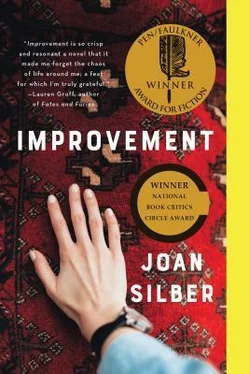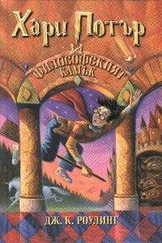When her store began to fail and she had to give it up, Kiki supported herself by cleaning houses. She evidently did this with a good spirit; the family was much more embarrassed about it than she was. “People here don’t know how to clean their houses,” she would say. “It’s sort of remarkable, isn’t it?”
By the time I was a little kid, Kiki had become the assistant director of a small agency that booked housekeepers and nannies. She was the one you got on the phone, the one who didn’t take any nonsense from either clients or workers. She was friendly but strict and kept people on point.
I was only a teeny bit afraid of her as a child. She could be very withering if I was acting up and getting crazy and knocking over chairs. But when my parents took me to visit, Kiki had special cookies for me (I loved Mallomars), and for a while she had a boyfriend named Hernando who would play airplane with me and go buzzing around the room. I loved visiting her.
My father told me later that Hernando had wanted to marry Kiki. “But she wasn’t made for marriage,” he said. “It’s not all roses, you know.” He and my mother had a history of having, as they say, their differences.
“Kiki was always like a bird,” my father said. “Flying here and there.”
What a corny thing to say.
I grew up on the outskirts of Boston, in a neighborhood whose leafy familiarity I spurned once I was old enough for hip disdain. I moved to New York as soon as I finished high school, which I barely did. My parents and I were not on good terms in my early years in the city. They hated the guy I first took off with, and my defense of him often turned into insulting them. And I really had no use for more school, and they could never take this in. But Kiki made a point of keeping in touch. She’d call on the phone and say, “I’m thirsty, let’s go have a drink. Okay?” At first I was up in Inwood, as far north in Manhattan as you can get, so it was a long subway ride to see her in the East Village, but once I moved to Harlem it wasn’t quite so bad. When my son was born, four years ago, Kiki brought me the most useful layette of baby stuff, things a person couldn’t even know she needed. Oliver would calm down and sleep when she walked him around. He grew up calling her Aunt Great Kiki.
The two of us lived in a housing project, one of the nicer ones, in an apartment illegally passed on to me by a boyfriend. It was a decent size, with good light, and I liked my neighbors. They were a great mix, and nobody wanted to rat on me about the lease. They’d stopped thinking I was another white gentrifier, sneaking in.
In late October of the year that the TV kept telling us to get prepared for Hurricane Sandy, Oliver had a great time flicking the flashlight on and off (a really annoying game) and watching me tape giant x ’s on the window glass. All the kids on our hallway were hyped up and excited, running around and yelling. We kept looking out the windows as the sky turned a sepia tint. When the rains broke and began to come down hard, we could hear the moaning of the winds and everything clattering and banging in the night, awnings and trees getting the hell beaten out of them. I kept switching to different channels on TV so we wouldn’t miss any of it. The television had better coverage than my view out the window. Through the screen a newscaster in a suit told us the Con Ed substation on Fourteenth Street had exploded! The lights in the bottom of Manhattan had gone out! I made efforts to explain to Oliver about electricity, as if I knew. Never, never put your finger in a socket. Oliver wanted to watch a better program.
At nine thirty the phone rang and it was my father, who had more patience with me these days but didn’t call that often. He was calling to say, “Your aunt Kiki doesn’t have power, you know. She’s probably sitting in the dark.” I had forgotten about her entirely. She was on East Fifth Street, in the no-electricity zone. I promised I’d check on Kiki in the morning.
“I might have to walk there,” I said. “It’s like a hundred twenty blocks. You’re not going to ask about my neighborhood? It’s fine.”
“How’s Oliver?”
“Great.”
“Don’t forget about Kiki, okay? Tell me that.”
“I just told you,” I said.
The weather outside was shockingly pleasant the next day, mild with a white sky. We walked for half an hour, which Oliver really did not like, past some downed trees and tossed branches, and then a cab miraculously stopped and we shared it with an old guy all the way downtown. No traffic lights, no stores open—how strange the streets were. In Kiki’s building, I led Oliver up four flights of dark tenement stairs while he drove me nuts flicking the flashlight on and off.
When Kiki opened the door onto her pitch-black hallway, she said, “Reyna! What are you doing here?”
Kiki, of course, was fine. She had plenty of vegetables and canned food and rice—who needed a fridge?—and she could light the stove with a match. She had daylight now and candles for later. She had pots of water she could boil to wash with. The tub had been filled the night before. How was I? “Oliver, isn’t this fun?” she said.
Oh, New Yorkers were making such a big fuss, she thought. She had a transistor radio so the fussing came through. “I myself am enjoying the day off from work,” she said. She was rereading The Greek Way by Edith Hamilton—had I ever read it? I didn’t read much, did I?—and she planned to finish it tonight by candlelight.
“Come stay with us,” I said. “Wouldn’t you like that, Oliver?”
Oliver crowed on cue.
Kiki said she always preferred being in her own home. “Oliver, I bet you would like some of the chocolate ice cream that’s turning into a lovely milkshake.”
We followed her into the kitchen, with its painted cabinets and old linoleum. When I took off my jacket to settle in, Kiki said, “Oh, no. Did you get a new tattoo?”
“ No. You always say that. You’re phobic about my arms.”
“I’ll never get used to them.”
I had a dove and a sparrow and a tiger lily and a branch with leaves. They all stood for things. The dove was to settle a fight with Oliver’s father, who was much less nice than Boyd, my current boyfriend; the sparrow was the true New York bird; the tiger lily meant boldness, which I was big on when I was younger; and the branch was an olive tree in honor of Oliver. I used to try to tell Kiki they were no different from the patterns on rugs. “Are you a floor?” she said. She accused my tattoos of being forms of mutilation and also forms of deception against my natural skin. According to what? “Well, Islamic teaching, for one thing,” she said.
Kiki had never been a practicing Muslim but she liked a lot of it. I may have been the only one in the family who knew how into it she’d once been. She used to try to get me to read this unreadable guy Averroes and also another one, Avicenna. Only my aunt would think someone like me could just dip into twelfth-century philosophy if I felt like it. She saw no reason why not.
“Oliver, my boy,” she was saying now, “you don’t have to finish if you’re full.”
“Dad’s worried about you,” I told Kiki.
“I already called him,” she said. It turned out her phone still worked because she had an old landline, nothing digital or bundled.
She’d been outside earlier in the day. Some people on her block had water but she didn’t. Oliver was entranced when Kiki showed him how she flushed the toilet by throwing down a potful of water.
“It’s magic,” I said.
When we left, Kiki called after us, “I’m always glad to see you, you know that.” She could have given us more credit for getting all the way there, I thought.
Читать дальше












